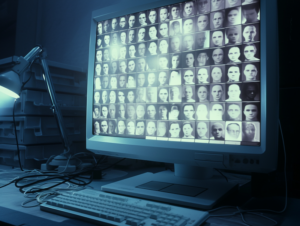
Clearview AI, a controversial American facial recognition company, has been expanding its services into Latin America.
Over the past three months, law enforcement officials from various Latin American countries have successfully used Clearview’s technology to solve numerous cases of online child exploitation.
Clearview AI’s technology, which has scraped billions of images from the internet and social media platforms to match individuals to suspects using facial recognition, was used earlier this year by Dallas police to identify and arrest a suspected child pornographer.
Despite its effectiveness in law enforcement, the New York-based company has faced significant controversy since being highlighted in a January 2020 New York Times article. This includes a large fine from an Italian privacy group and a settlement under Illinois’ Biometric Information Privacy Act (BIPA), reflecting ongoing concerns and legal challenges regarding privacy and the ethical use of biometric data.
During a five-day operation in Ecuador in March, participants from ten countries used Clearview’s tool to analyze thousands of images and videos, resulting in the identification of 29 offenders and 110 victims, with many of the latter subsequently rescued. The operation demonstrated the tool’s efficiency, highlighting its rapid identification capabilities compared to traditional methods.
The company faces significant legal challenges and privacy concerns in the U.S. and Europe, where it is largely restricted from selling its services to private companies due to privacy law violations. However, in Latin America, the company has found a more receptive market, with fewer regulatory hurdles. This expansion raises concerns among privacy advocates who warn about the potential for misuse and lack of robust data protection in the region.
Clearview’s tools have already been implemented in five Latin American countries and are used for a variety of law enforcement purposes, including identifying suspects in violent crimes and locating missing persons. The company claims its technology is crucial for combating organized crime and human trafficking in the region.
Source: Time
—
July 3, 2024 — by Tony Bitzionis







Follow Us